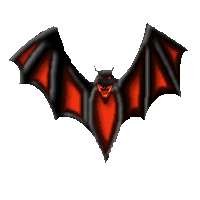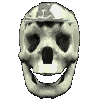 Imagery
Imagery
 Imagery
Imagery
In 'Macbeth' darkness symbolizes many things. First, and most important, it stands for the evil and death in the play. The darkness could partially blind out all of the horrible things that occur in the night. For, only in darkness can such evil deeds be done. Secondly, the darkness shows one of Lady Macbeth's weaknesses: her fear of dark. In the play, phrases of fear escape from lips even in her sleep. She believes darkness to be the place of torment.

Within the whole drama, the sun seems to shine only twice. First, in the beautiful but ironical passage when Duncan sees the swallows flirting round the castle of death. Another time, when at the close of the avenging army gathers to rid the earth of its shame. Therefore, the reader can conclude that Shakespeare portrays darkness to establish the evil parts of the play; whereas, we employ daylight to define victory or goodness in the play.
 The cover of darkness allows evil to emerge and the guilt that is felt by the
Macbeths
leaves them in a sleepless and dangerous state. They call upon night to help them
perform
The cover of darkness allows evil to emerge and the guilt that is felt by the
Macbeths
leaves them in a sleepless and dangerous state. They call upon night to help them
perform
 their deeds by protecting them from the forces of 'good'. As a result, they begin to rely
more
on darkness to allow them to plot and plan their actions and to cover their intentions
with a
blanket of evil. Darkness provides a context where evil can prosper and disorder is
created
by the inability to distinguish what would be obvious during the day. The dark side of
Macbeth is reflected at night where his disordered state does not allow him to
distinguish
between reality and illusion.
their deeds by protecting them from the forces of 'good'. As a result, they begin to rely
more
on darkness to allow them to plot and plan their actions and to cover their intentions
with a
blanket of evil. Darkness provides a context where evil can prosper and disorder is
created
by the inability to distinguish what would be obvious during the day. The dark side of
Macbeth is reflected at night where his disordered state does not allow him to
distinguish
between reality and illusion.

 Act 4 Scene 3:
Act 4 Scene 3:
|
|
|
|
|
|
|